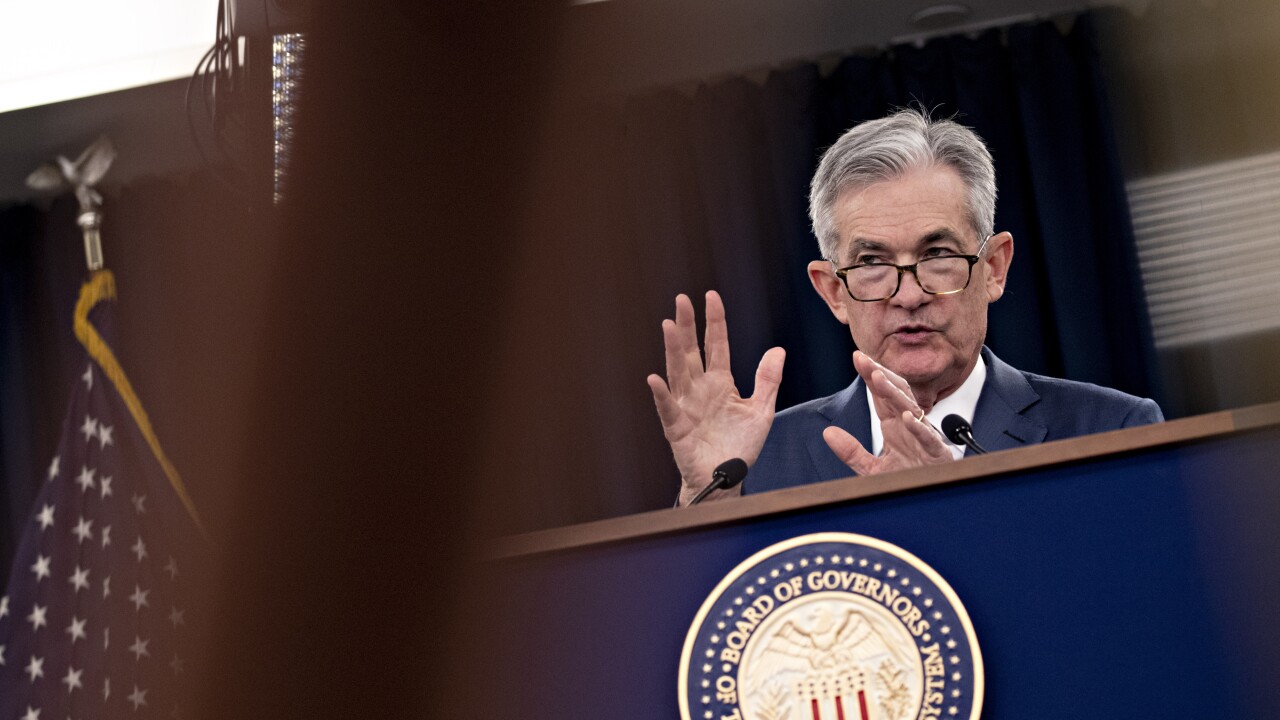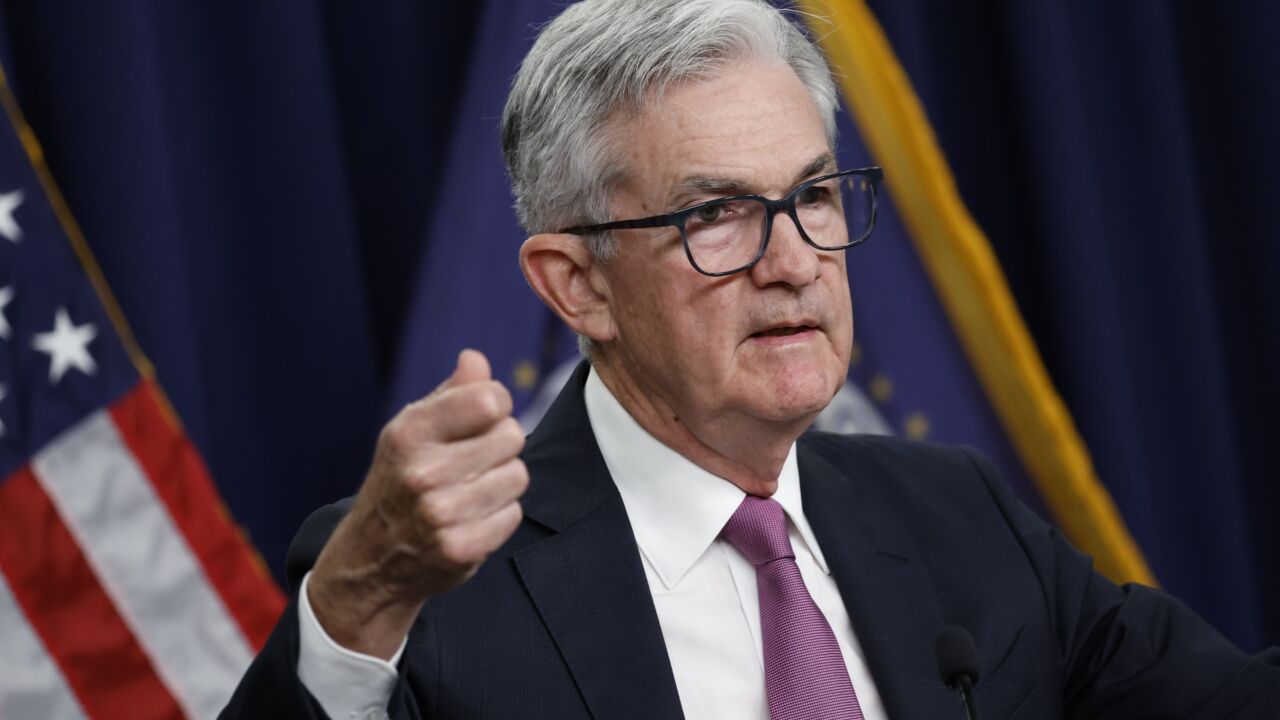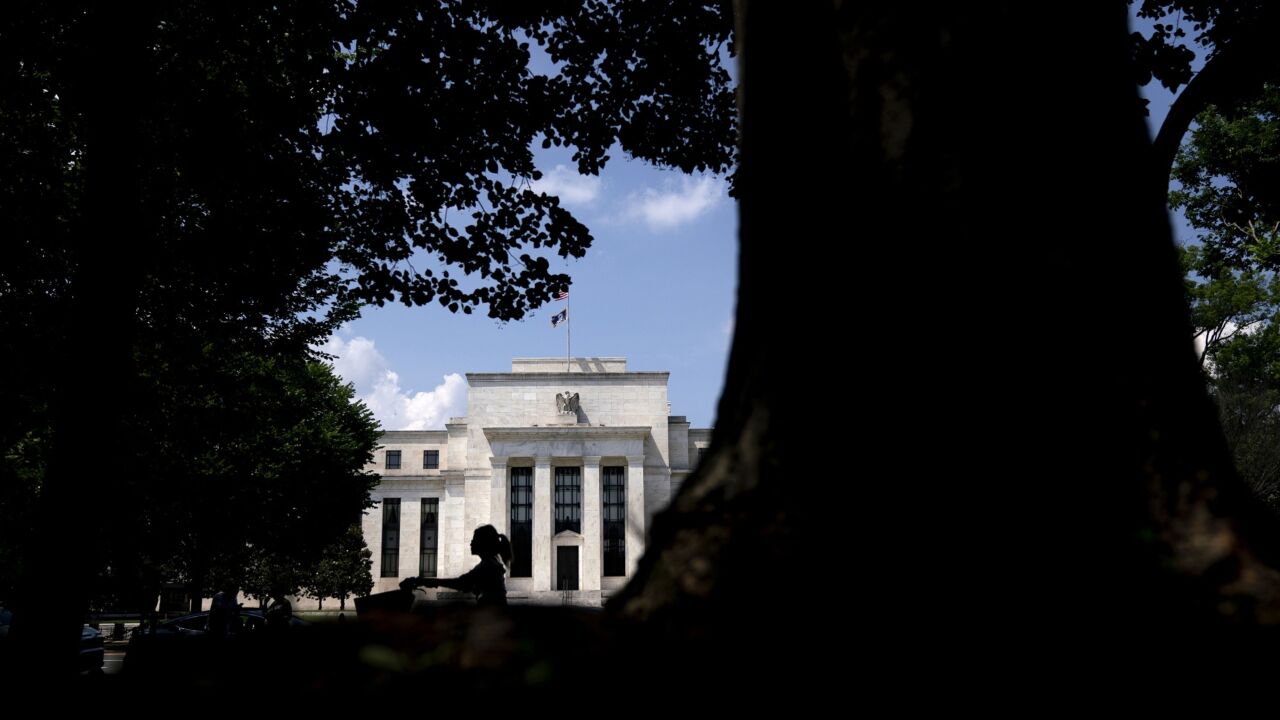-
With the Federal Reserve touting a slower pace of easing, markets are expecting a longer pause. But Gov. Christopher Waller said the next interest rate reduction could come as soon as March because of inflation data.
January 16 -
Seen by many as a logical pick for the Federal Reserve's next vice chair for supervision, Gov. Michelle Bowman wants the institution to focus on safety and soundness issues, tailoring and transparency.
January 9 -
Analysts are unsure what the Federal Open Market Committee will do with monetary policy in 2025. The panel projects two rate cuts, but some analysts expect more, and others see fewer.
December 26 -
The Federal Reserve is poised to make several key decisions during the year ahead that will impact monetary policy both in the near term and for years to come.
December 25 -
The Federal Reserve lowered its policy rate but signaled a more "cautious" approach to future cuts in light of higher inflation expectations. Policy uncertainty was one of several contributing factors to that change in forecast.
December 18 -
Annualized inflation increased to 2.7% in November from 2.6% the previous month, providing further evidence that the economy remains strong despite restrictive monetary policy.
December 11 -
The Federal Reserve chair is not concerned about President-elect Trump nominating his successor well in advance of the end of his term in 2026, saying he is "confident" he will have a productive relationship with the next Treasury Secretary.
December 4 -
Federal Reserve Gov. Christopher Waller, a Trump appointee, said that while recent inflation readings are concerning, monetary policy would remain restrictive even if the central bank cuts interest rates by another quarter-point this month.
December 2 -
The Federal Reserve chair said there are no economic indicators calling for rapid rate cuts. He also addressed Fed independence, the impact of Trump's economic agenda and more.
November 14 -
The Federal Reserve's top official was emphatic that he and other leaders on the Board of Governors cannot be dismissed or demoted at will by the president.
November 7 -
Federal Reserve chair Jerome Powell flagged a recent upward revision to income and savings data as a sign of economic strength. He said the information could factor into the central bank's monetary policy discourse during the Fed's next interest rate meeting in November.
September 30 -
The move signals the end of the Federal Reserve's battle against runaway inflation in the wake of the COVID-19 pandemic. Fed officials expressed divergent views on further action this year.
September 18 -
Economists are also forecasting faster and deeper cuts to borrowing costs over the next year, and see the central bank reducing the policy rate from the current 4.5% to 3% by next July.
August 26 -
In his speech at the Federal Reserve's Jackson Hole Economic Symposium, the Fed chair said employment losses are now a bigger risk than elevated inflation.
August 23 -
"Fed watchers will be parsing Powell's comments for signs that a 50bp rate cut is on the table for September," noted Lauren Saidel-Baker, an economist with ITR Economics. "However, the notoriously tight-lipped chair is unlikely to confirm this, making a 25bp cut the most likely outcome."
August 21 -
Policymakers also made several adjustments to the language of a statement released after their two-day meeting in Washington, signaling they are closer to reducing borrowing costs.
July 31 -
The central bank also noted that the banking system is sound but faces several challenges. The report precedes Federal Reserve Chair Jerome Powell's upcoming appearances on Capitol Hill.
July 5 -
Federal Reserve Chair Jerome Powell says crushing inflation is the most important thing the Fed can do to reduce costs in the housing market. Some economists and policy specialists say higher rates are not the only tool at its disposal.
June 14 -
In a speech, the Federal Reserve governor said she would have liked to see the Federal Open Market Committee move more quickly to reduce its holdings. The central bank is poised to begin slowing the pace of balance sheet runoff this week.
May 28 -
The Federal Open Market Committee held the federal funds rate at current levels, citing "lack of further progress" toward meeting inflation goals.
May 1
















